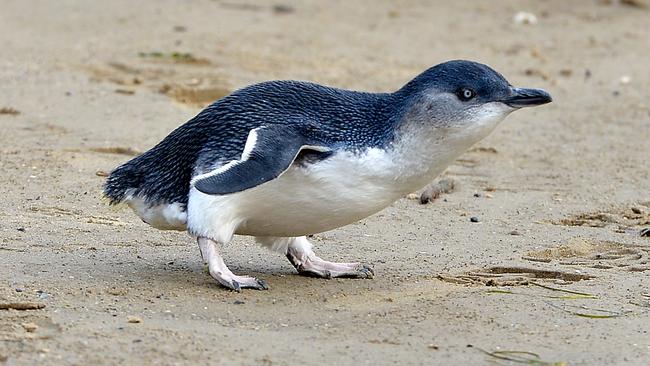High levels of mercury, arsenic and lead found in St Kilda penguins
ST KILDA’S little penguins have much higher traces of mercury, arsenic and lead in their blood than their Victorian counterparts, a study has shown.

Inner South
Don't miss out on the headlines from Inner South . Followed categories will be added to My News.
ST KILDA’S little penguins have much higher traces of toxic elements in their blood than their counterparts on Phillip Island.
A team of Victorian University researchers spent three years sampling the blood, feathers and faeces of 300 penguins at St Kilda, Phillip Island and Notch Island, 20km east of Wilsons Promontory.
St Kilda is home to a colony of almost 1000 little penguins.
The study showed these penguins had much higher traces of mercury, arsenic and lead in their blood.
“The St Kilda penguins really stood out when we looked at the metals in the blood,” said lead researcher Annett Finger .
“Their arsenic levels were four times as high, mercury levels two and half times as high and lead twice as high as their counterparts in the other colonies we tested.”
RELATED: Snap-happy tourists harass St Kilda penguins with mobile phones cameras mounted on selfie sticks
Ms Finger said the levels did not necessarily mean the penguins were unhealthy or in any danger.
But she said the mercury levels should be monitored and that the bay dredging in 2008 and 2009 could be one reason for the high levels.
“The dredging stirred up a lot of sediments that had been at the bottom, causing them to be resuspended in the water, potentially reintroducing them to the food chain.”
Penguin expert Peter Dann from Phillip Island Nature Parks said the effects of high levels of mercury in little penguins were unknown.
“When mercury levels are high enough they will cause poisoning, but we don’t yet know at what point that will happen,” Dr Dann said.
“Increased levels of metal in the St Kilda penguins blood samples don’t appear to be having an effect on their population, they’re actually thriving there, but certainly we wouldn’t want to see the mercury levels continue to rise,” he said.
Earthcare St Kilda president Terry Lobert said the report provided an indicator of the health of the bay in general and the issue was bigger than just the penguins.
He said it affected the health of all life in the bay, including people.


